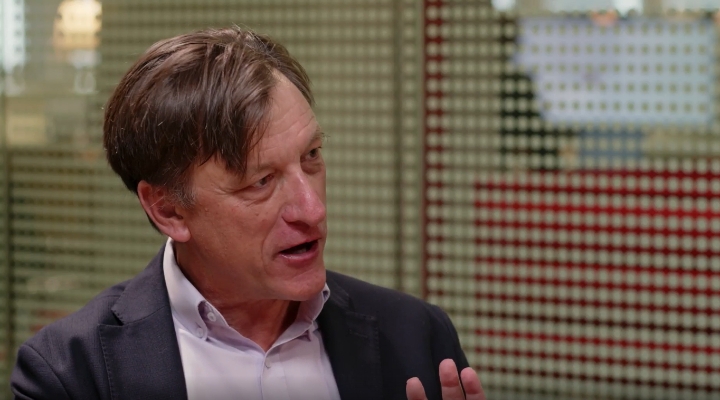
In this series of short profiles, we ask leading fund managers to defend their investment strategies, reveal their views on cryptocurrency, and tell us what they'd never buy.
This week our interviewee is Alex Stanic, Artemis’ Head of Global Equities. He also manages the Neutral-rated Artemis Global Select Fund with Simon Edelsten and Natasha Ebtehadj.
Which Sector Shows the Biggest Promise in 2023?
Our approach is bottom-up stock-picking. The way we get there is to look for long-term themes that point us towards enduring, investable trends. There are many challenges in the world economy, including inflation and interest rates. These give a wide variety of potential outcomes, making our focus on resilient areas even more relevant. One resilient area is the green energy transition, which is backed by government legislation – like the Inflation Reduction Act in the US – and will happen no matter what.
What's the Biggest Economic Risk Today?
The big challenge is inflation. There’s an expectation that inflation will slow down when the economy slows down, but that could be misleading. Back in the ’70s inflation came in several stages. It looked like it had been conquered, and central banks reversed course as the economy slowed – but then inflation came back even stronger. So the question will be: “It is it really gone?” And we won’t know that for some time. It will need close monitoring by the central banks, with a high risk of policy error. This creates considerable uncertainty and there are a wide range of possible outcomes.
Describe Your Investment Strategy
We look for long-term themes, backed by empirical evidence of resilience through multiple economic cycles. Then we look for companies that will benefit from these themes – companies that could deliver sustainable growth, are good-quality and, critically, are attractively valued.
We then build a portfolio from an opportunistic perspective – as opposed to benchmarking. We’re very much driven by the positive attributes of our stocks. But we stay disciplined around our process, especially when looking at quality and maintaining our valuation discipline. The result should be a portfolio of resilient businesses that drive wealth creation and returns over the longer run.
Which Investor Do You Admire?
The obvious answer is Warren Buffett. His performance over the long term and his extraordinary level of philanthropic giving really make him my number-one choice. I’d also add Howard Marks - his insights around the cycle and credit are always worth a read.
Name Your Favourite 'Forever Stock'
Tough question. Everything changes eventually – there’s really no such thing as a forever stock. But there are companies that remain relevant through many decades, even as their markets change. One example is L’Oréal, a business that plans over a very long timeframe. A management team with a long-term perspective can really help drive the success of a firm. A good example would be John Deere. Although it operates in cyclical industries it has been consistently successful and has invested in new areas well ahead of peers. There have only been 10 CEOs in over 180 years.
What Would You Never Invest In?
To give a slightly technical answer: companies that have no chance of ever generating returns ahead of their cost of capital.
Growth or Value?
I think the recent shift towards looking for a binary split between growth and value is ultimately overly simplistic. I’d argue that every investment we make is good value and involves a business that has the potential to grow. Our investment process is designed to find and invest in companies which can be rare opportunities – great quality businesses at attractive prices.
House or Pension?
Time for a simple answer: I’d choose a pension, as it’s more flexible.
Crypto: Brilliant or Bad?
How the technologies underpinning crypto can be applied – that could be brilliant. Unfortunately, it’s the bad side that’s hitting the headlines. The scandals and fraud in the sector are clearly appalling.
What Can be Done to Improve Diversity in Fund Management?
Diversity is something I have always focussed on when building investment teams. I’ve often seen decisions enhanced by diverse perspectives, something backed up by academic research. I’m also a sponsor on the Diversity Project’s Pathway Programme. It is designed to help women join the industry, and it’s great to actively help beyond my immediate role.
Have you Ever Engaged with a Company and Been Particularly Proud (or Disappointed) in the Outcome?
Uber has often got a lot of flak. Historically it has received low ESG rankings that essentially penalised it as part of the gig economy. But there’s huge value in the flexible work Uber provides. If you want flexibility then it’s a phenomenal way to earn money within a relatively safe environment. Research we did suggested that this has been underappreciated, so I engaged and asked for more information.
Uber recently produced an ESG report that listed initiatives in driver safety, benefits, and convenience. The company also has driver wellbeing in its executive compensation programme. These important messages highlight how engagement can help surface critical information around a business.
What’s the Best Advice You’ve Ever Been Given?
Uber recently produced an ESG report that listed initiatives in driver safety, benefits, and convenience. The company also has driver wellbeing in its executive compensation programme. These important messages highlight how engagement can help surface critical information around a business.
What Would You be if You Weren’t a Fund Manager?
A psychologist. Behavioural trends can have an outsize impact on markets and of course, it is at the root of so many other things, which is fascinating.

























